Subscribe to Our Newsletter
Stay updated with the latest tips and strategies. Get additional discounts and alerts on offers.
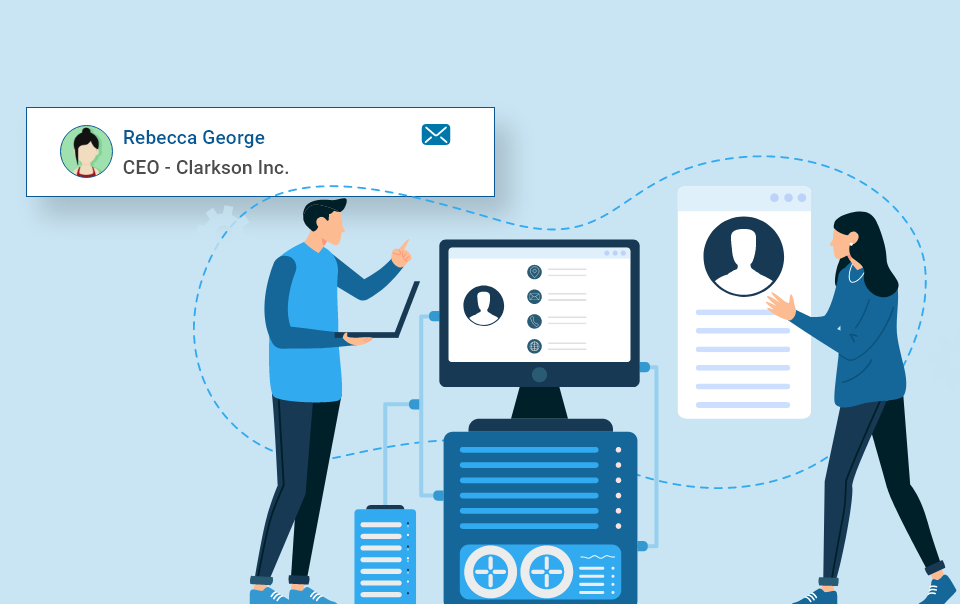
In the B2B world, data isn’t just an asset—it’s the engine driving growth, innovation, and efficiency. With businesses increasingly relying on data to fuel their strategies, the importance of having access to accurate, reliable, and segmented information has skyrocketed. This is where a B2B database provider comes in.
But what exactly is a B2B database provider? Why do businesses need one? And how can they unlock untapped potential for lead generation, market research, and sales growth through these providers? This comprehensive guide will explore everything you need to know about B2B database providers, offering actionable insights and strategies to leverage their value.
A B2B database provider is a service that compiles and delivers business-related data tailored for marketing, sales, and operational needs. These providers collect vast amounts of data from various sources, validate its accuracy, and segment it based on criteria such as:
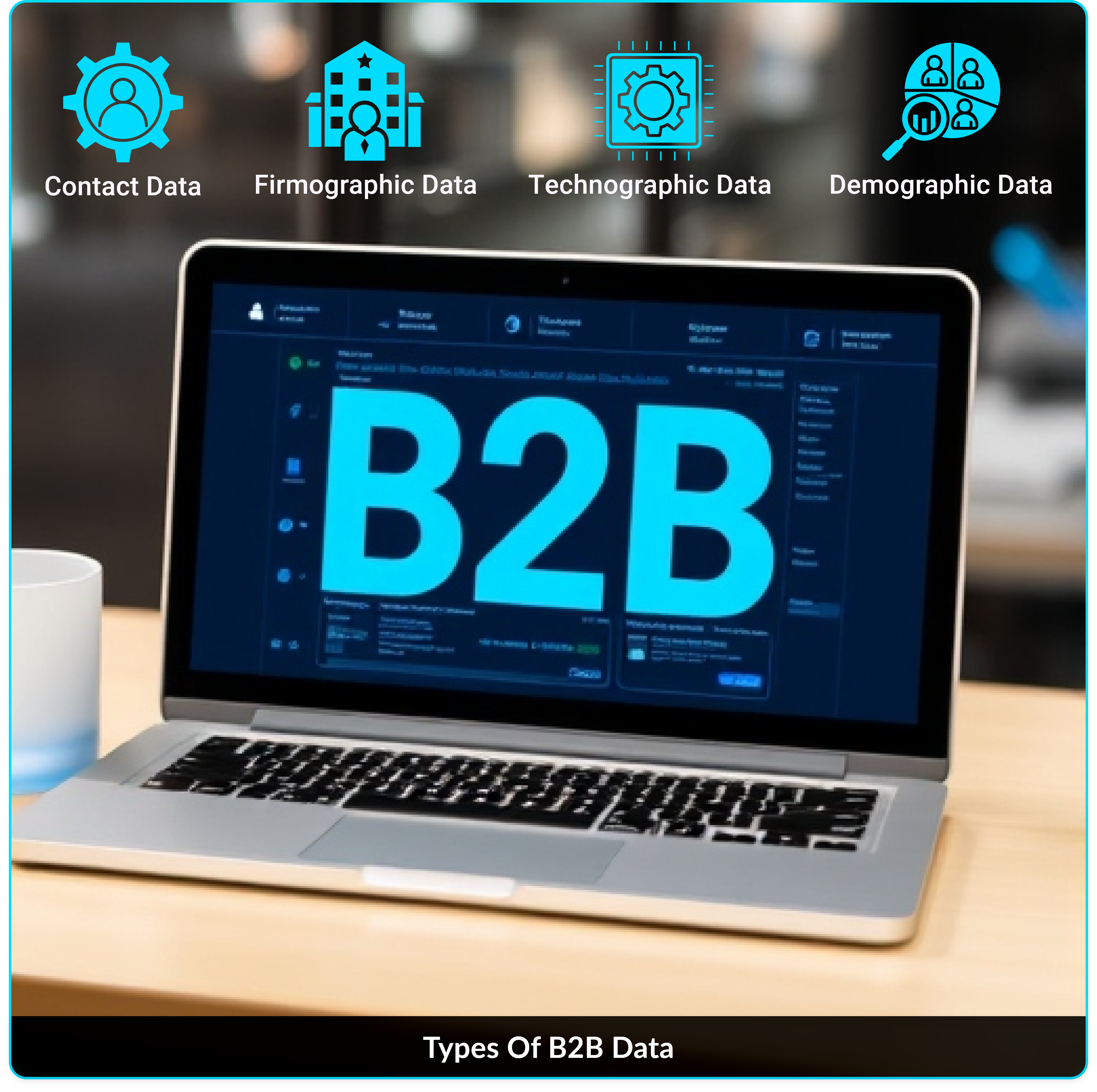
B2B database providers cater to businesses of all sizes, from startups seeking their first leads to multinational corporations scaling their outreach campaigns.
B2B database providers employ a systematic approach to deliver reliable data to their clients. Here’s a step-by-step breakdown:
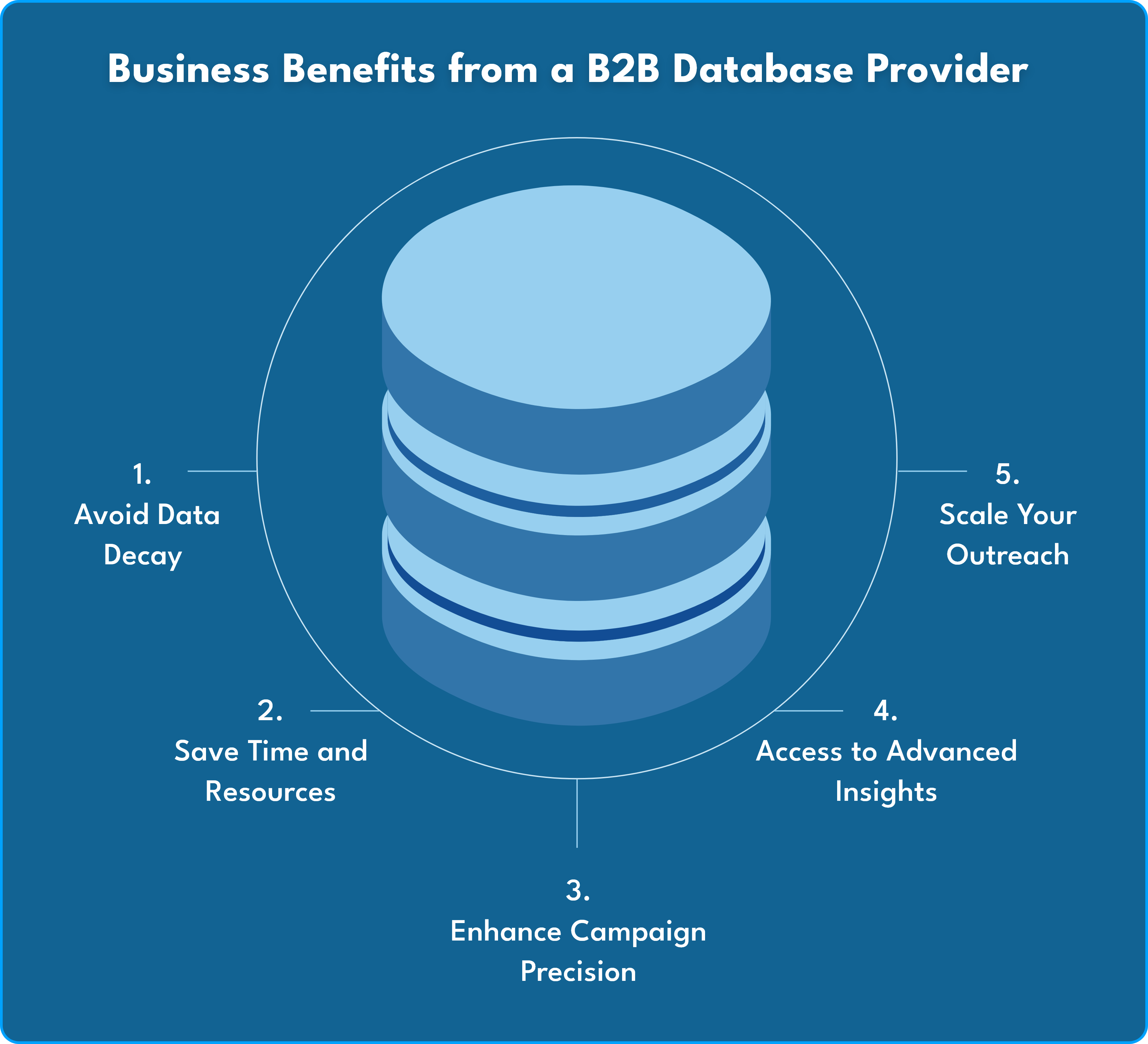
Providers deliver pre-qualified leads, reducing the need for prospecting and enabling faster sales cycles.
Sales teams waste less time chasing unverified leads and focus more on high-value prospects.
Accurate data allows businesses to make informed decisions, whether it’s identifying new markets, refining product offerings, or optimizing marketing strategies.
Investing in a provider reduces the hidden costs of maintaining outdated or incomplete internal databases.
Having access to comprehensive, real-time data gives businesses an edge in highly competitive markets.
Unlock the power of accurate and segmented data to elevate your marketing strategies. Start your journey with a reliable B2B database provider today!
Leading providers offer data with accuracy rates of 90% or higher, minimizing email bounces and ensuring effective communication.
Businesses can request data tailored to specific requirements, such as targeting C-suite executives in healthcare or SMBs in a particular region.
Top providers adhere to global data privacy standards like GDPR, CCPA, and CAN-SPAM, ensuring ethical usage.
Regular updates ensure the data reflects recent changes, such as new hires, role transitions, or company expansions.
Providers cater to businesses of all sizes, offering flexible packages that grow alongside their clients.
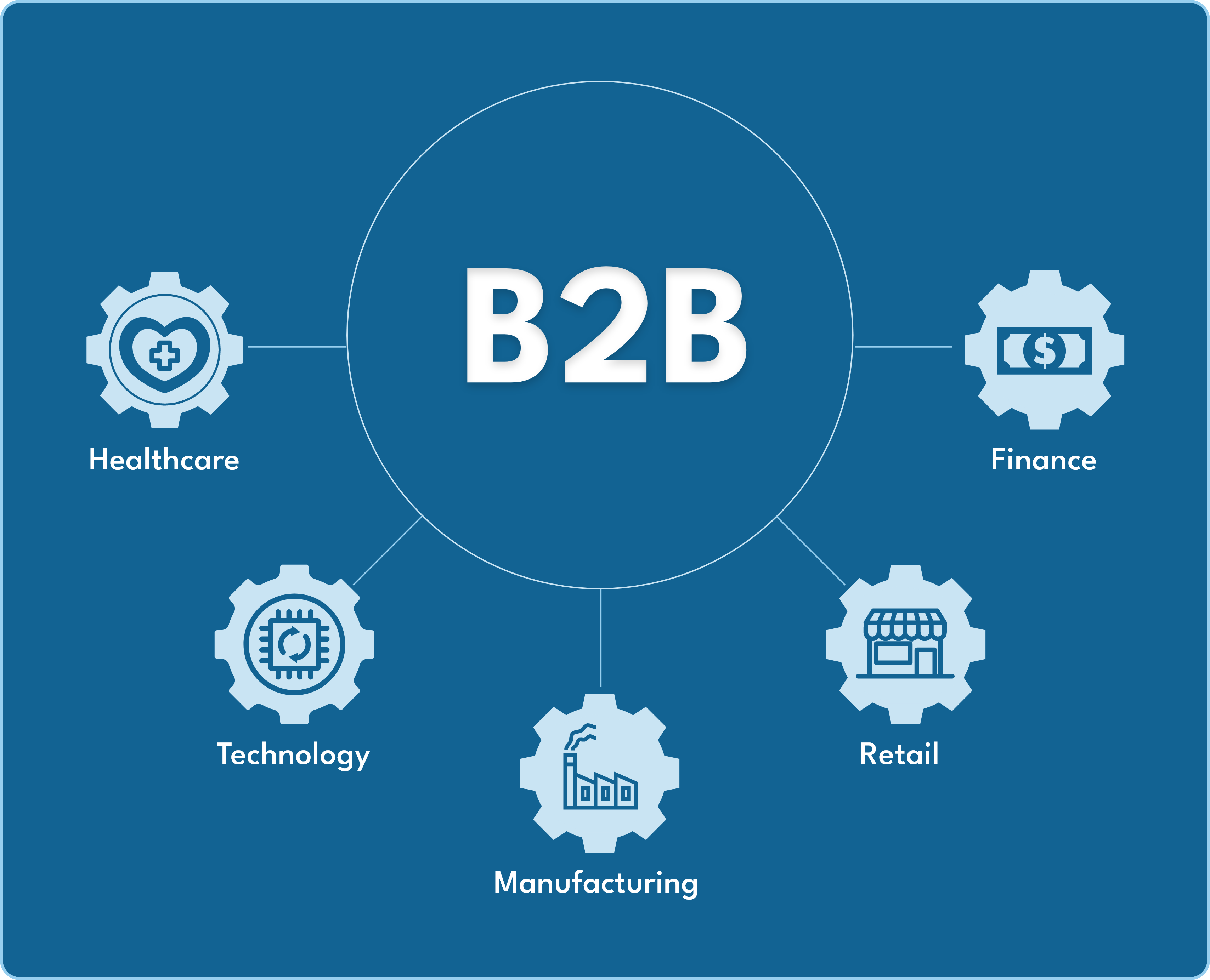
Pharmaceutical companies, medical equipment manufacturers, and healthcare providers use databases to connect with professionals and institutions.
Tech firms rely on databases to identify potential customers for SaaS products, cloud services, and IT consulting.
Manufacturers use data to streamline supply chains, target distributors, and identify resellers.
Retailers leverage B2B databases to engage with wholesalers, suppliers, and logistics partners.
Financial institutions target CFOs, accountants, and business owners for their lending and investment solutions.
Providers ensure data accuracy through rigorous validation processes.
Trusted providers help businesses remain compliant with regulations, reducing legal risks.
Providers offer analytics and segmentation, enabling businesses to understand their markets better.
Providers segment data into manageable categories, ensuring businesses can easily find what they need.
Ready to streamline your lead generation and outreach? Partner with a top-tier B2B database provider and achieve your business goals faster.
Look for providers with high accuracy rates and testimonials to back their claims.
Many providers offer sample data to demonstrate quality before purchase.
Ensure the provider can tailor data to your specific needs.
Choose providers who adhere to GDPR, CCPA, and other relevant regulations.
Compare packages and features to find a provider that fits your budget without compromising on quality.
Sync the database with your CRM for seamless lead tracking and campaign management.
Use filters to create highly targeted lists for email campaigns, cold calling, or personalized ads.
Utilize AI-driven tools to analyze patterns, predict trends, and prioritize leads.
Use fresh data to refine targeting, messaging, and outreach efforts.
Track key metrics like email deliverability, response rates, and conversions to optimize future campaigns.
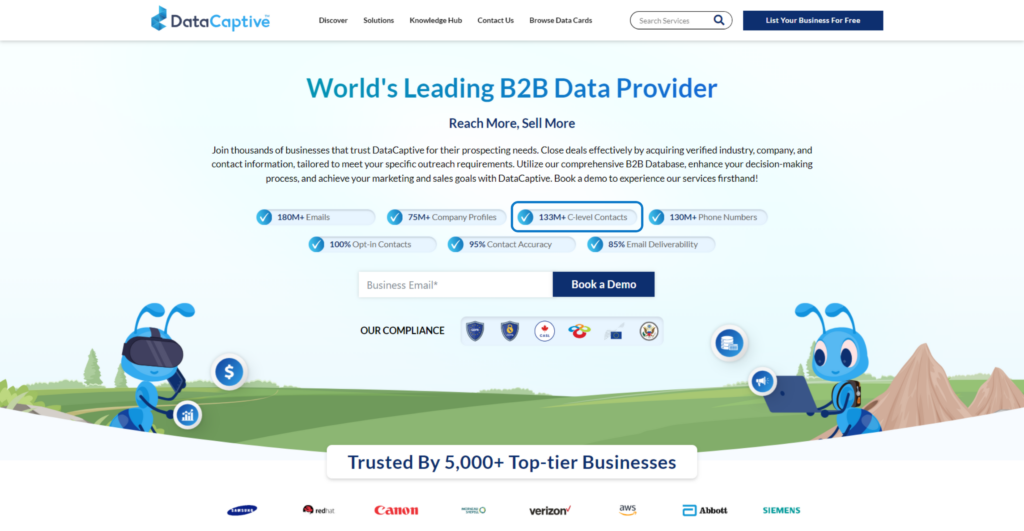
DataCaptive is a versatile data provider known for offering industry-specific solutions tailored to meet the needs of sectors such as healthcare, finance, and manufacturing.
Their comprehensive databases include accurate and segmented contact information that empowers businesses to connect with decision-makers effectively. With a strong focus on delivering quality data, DataCaptive ensures businesses can streamline their marketing and outreach strategies for better ROI.
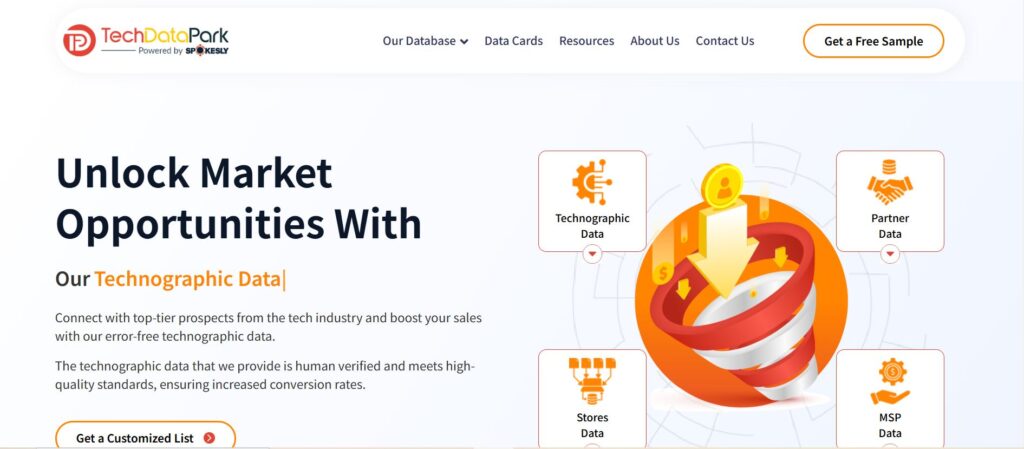
TechDataPark is a leader in providing technographic data, specializing in serving IT and SaaS companies. They excel in delivering real-time updates and highly accurate segmentation to ensure businesses target the right audience effectively.
Whether for lead generation, customer profiling, or account-based marketing, TechDataPark’s data solutions help organizations stay ahead in the competitive tech industry.
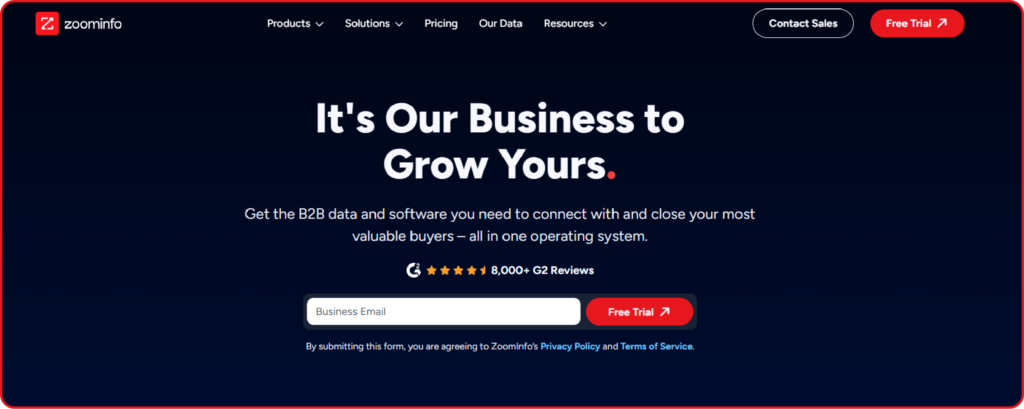
ZoomInfo stands out for its extensive database that integrates advanced analytics capabilities to provide actionable insights. It offers seamless integrations with popular CRMs like Salesforce and HubSpot, making it an ideal choice for businesses looking to enhance their sales and marketing processes.
With its robust platform, ZoomInfo enables organizations to identify opportunities, optimize campaigns, and drive revenue growth efficiently.
Providers are leveraging AI to predict buyer intent and improve segmentation.
Real-time updates will become the standard, reducing data decay and increasing accuracy.
Customized databases based on behavioral and purchase patterns will become more prevalent.
With stricter regulations, providers will prioritize transparency and data privacy.
A B2B database provider is more than just a data supplier—it’s a partner in your business growth. By offering accurate, segmented, and compliant data, these providers enable businesses to unlock new opportunities, optimize campaigns, and achieve their goals faster.
Whether you’re a small startup or a multinational corporation, investing in a reliable database provider is a step toward sustainable success. Choose wisely, leverage their tools effectively, and watch your business thrive in the data-driven era.
Not sure which B2B database provider suits your business? Request a free demo and see how tailored data can transform your campaigns.
A B2B database provider is a service that compiles, verifies, and delivers business-related data, such as contact details, company information, and decision-maker insights, to help businesses with lead generation and outreach.
A B2B database helps businesses identify and connect with their target audience, streamline lead generation, and improve marketing and sales efficiency through accurate and segmented data.
Providers use automated tools, manual verification processes, and regular updates to maintain high data accuracy and reduce issues like bounce rates or outdated information.
Industries like healthcare, technology, manufacturing, retail, and financial services benefit significantly by accessing relevant and segmented data for lead generation and market research.
Evaluate providers based on data accuracy, compliance with regulations (GDPR, CCPA), customization options, and customer reviews. Always request sample data to assess quality.
Yes, reputable providers comply with GDPR and other data protection laws, ensuring businesses use data ethically and legally.
Building an in-house database is time-consuming, costly, and prone to data decay. It also requires regular updates and maintenance to ensure accuracy.
Yes, most B2B databases can be integrated with popular CRM platforms like ReachEngine, Salesforce, HubSpot, and Zoho, enabling seamless lead management.
Costs vary depending on the provider, data volume, and customization needs. Some providers offer flexible pricing models to cater to different business sizes and budgets.
A B2B database should be updated at least quarterly to account for changes like role transitions, company mergers, or contact information updates, though some providers offer real-time updates
B2B database providers typically offer contact details, firmographic data (company size, industry, revenue), technographic data (tools/software used), and behavioral insights (buying patterns, engagement history).
By providing accurate, segmented, and verified contact lists, B2B databases ensure better email deliverability, personalization, and higher engagement rates.
Technographics refer to the technology stack or software a company uses. They help businesses target prospects based on specific tools or platforms, making outreach more relevant.
Yes, outdated data leads to high bounce rates, misaligned targeting, wasted resources, and potential non-compliance with regulations like GDPR.
Data enrichment involves updating and enhancing existing data with additional information, while a database provider delivers pre-compiled, verified data for immediate use.
Absolutely. Small businesses can save time, scale their outreach, and focus on high-value prospects by using affordable and tailored databases.
Segmentation categorizes data based on criteria like industry, location, job role, and company size, enabling more targeted and effective marketing campaigns.
Non-reputable providers may supply data that violates GDPR, CCPA, or other regulations, exposing businesses to fines, legal issues, and reputational damage.
B2B databases provide detailed information on high-value accounts, enabling personalized outreach and alignment between marketing and sales for ABM campaigns.
Indicators include high bounce rates, unverified or outdated data, lack of customization, non-compliance with data laws, and poor customer reviews.
Get a Sample Email List
Show Some Love!

Subscribe to Our Newsletter
Stay updated with the latest tips and strategies. Get additional discounts and alerts on offers.
Related Articles
Subscribe to Newsletter
Stay up to date with the latest marketing, sales, and service tips and news.
Share your requirements, and we’ll provide a tailored list to maximize your impact with the right contacts!

FILL IN YOUR DETAILS TO REQUEST A CALLBACK
You may also be interested in:
Access accurate personal emails and direct numbers for improved outreach.
Limited Time! Celebrate the spirit of freedom with 30% OFF on all B2B databases.
Unlock high-quality leads and drive your campaigns further with accurate, verified data trusted by thousands of businesses.
Don’t miss out—power up your marketing while the offer lasts!
